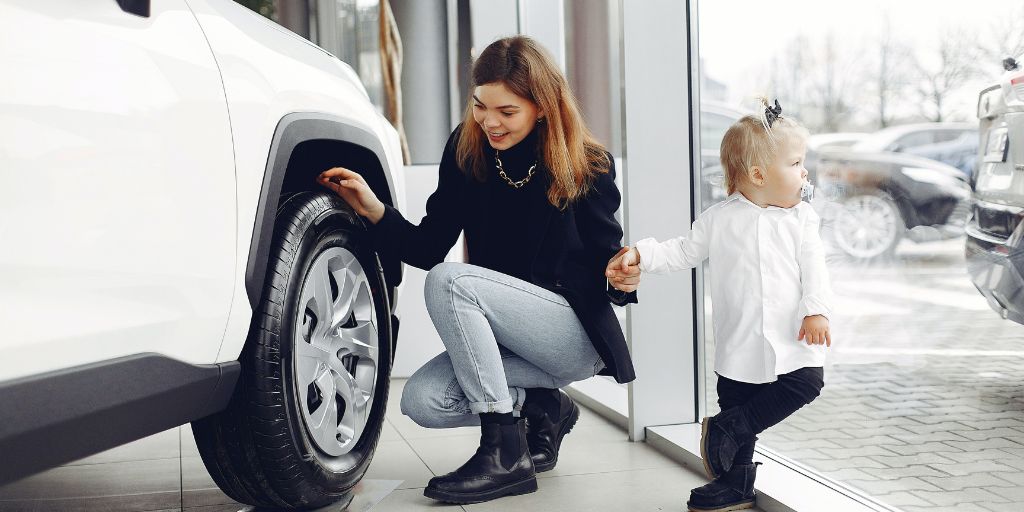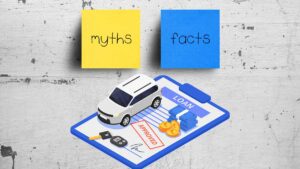Buying a car is everyone’s dream. Whether an SUV, sedan, or hatchback, the first car always holds a dear place in your life. Most people buy their cars through loans. Though it is good to buy a car on loan, buyers make many mistakes. If you are going to buy your vehicle on a used car loan or you are looking to refinance your car, stick to the end as we discuss the seven most common car loan mistakes to avoid.
Car loans allow you to drive a car home at meagre upfront costs, attracting many people. They end up making some mistakes, and it is good if you can avoid them. So let’s explore seven mistakes people make when they take a car loan.
Seven Common Car Loan Mistakes
- Borrowing More
Everyone dreams of owning a big car, but big cars also cost a lot more. Due to their high costs, if you make the decision to buy a big dream car, you’ll surely end up borrowing more.
Not only is borrowing more a bad thing, but it also makes your finances tumble in the long run. When you approach a dealer, they’ll try to convince you to borrow more by providing lesser interest rates and other offers, but you should never go on to borrow more. While this does not happen in refinancing where you only get a portion of your car’s market value as loan when you offer it as collateral, it can cause serious issues to people buying new cars.
Avoid this mistake once, and you’ll be proud of your decision in the years following your car purchase.
- Not Having A Budget
When you start looking for a car, having a budget will help a lot. Whether you are buying a new car with all the tech and gimmicks, or you buy a used car that get’s your work done, always have a budget. Without a budget, you’ll wander aimlessly across dealership floors, looking at different vehicles without any choice or goal.
Before you step into a dealership, having a defined budget will help you make the right choice. If you keep a budget, you’ll have a budget within which you can look for the best options. Moreover, this will also stop you from borrowing more than you need.
- Elongated Payback Period
Many times in the search for lowered EMIs, people opt for longer payback periods. While taking a car refinance loan, you should not make this mistake. Refinancing allows you to get money when you put your car as collateral, and it is quite common nowadays. You can have a temporary adjustment for buying a used car, and once the car is at home you can apply for refinancing. Car loans have yearly interest rates; the longer the payback period, the more interest you pay. Suppose you have a car loan with a flat rate of 7% per year, and the loan goes off for five years. You’ll end up paying 35% more on the amount that you loaned.
If you cannot finish your car loan in less time, try to pay more as a downpayment and reduce the total loan amount required. Another way to avoid this is by waiting for times when the interest rates are lowest or when you have enough money to pay the loan faster. In case you are refinancing, you are already having a car that is depreciating faster, so having a longer payback period will always harm you.
- Less Research
Less research is a big mistake that first-time car buyers make. They come across a dealer who usually charges more on car loans and end up trusting them. This results in an awful ownership experience as you pay more money in the loan’s interest.
Before you take out a car loan, it is important to understand car loan pros and cons, where you stand, and what your needs are. The research will help you avoid fraud and provide you with the best car buying experience. Even while refinancing your car, you should explore all the possible solutions in the market to get the best refinance interest rates. Today, there are tons of websites and apps where you can search for your research and compare different loan providers.
- Not Understanding Your Credit History
A deep and thorough understanding of your credit history is crucial to getting the best car loan. Whether you apply car loan online or offline, it will only get approved if you have an excellent credit history.
You may have a credit rating above 750 or 800; if you don’t know that, you might miss out on some excellent loan offers and benefits. Moreover, checking your credit history can help you negotiate better interest rates and eliminate any unknown liabilities on your credit history.
Incase you are going for a refinance loan, you should check on the credit history to ensure that there aren’t major dues that are standing, and only then go for a refinance loan for your used car.
- Adding Unnecessary Overheads
A car loan itself is pretty costly, and when you add more to it, the outcomes are miserable. Taking out more loans to add features to your car is one of the biggest mistakes. While the features may mean the world to you, you won’t get any return on them when you sell the car after some years.
If you want to do extra things to personalize your car, make sure that you do it with your saved money and not by opting for a bigger loan amount.
- Underestimating Pre-approved Loans
Pre-approved loans are often underestimated. Due to the constant bombarding of promotional pre-approved loans, people don’t care to look further if they have any pre-approved loans or not.
Getting a pre-approved loan from your primary account’s bank will do wonders. It will provide you with the best rate and an even better and flexible payback period. Before you apply for a car loan, always check whether you have any pre-approved loans sitting idle or not. Availing pre-approved loans is hassle-free, you can get the best rates, and you can even negotiate further. If you avoid these seven mistakes, you can enjoy long drives in your car without any issues. So keep them in mind before you finalize a car loan.









